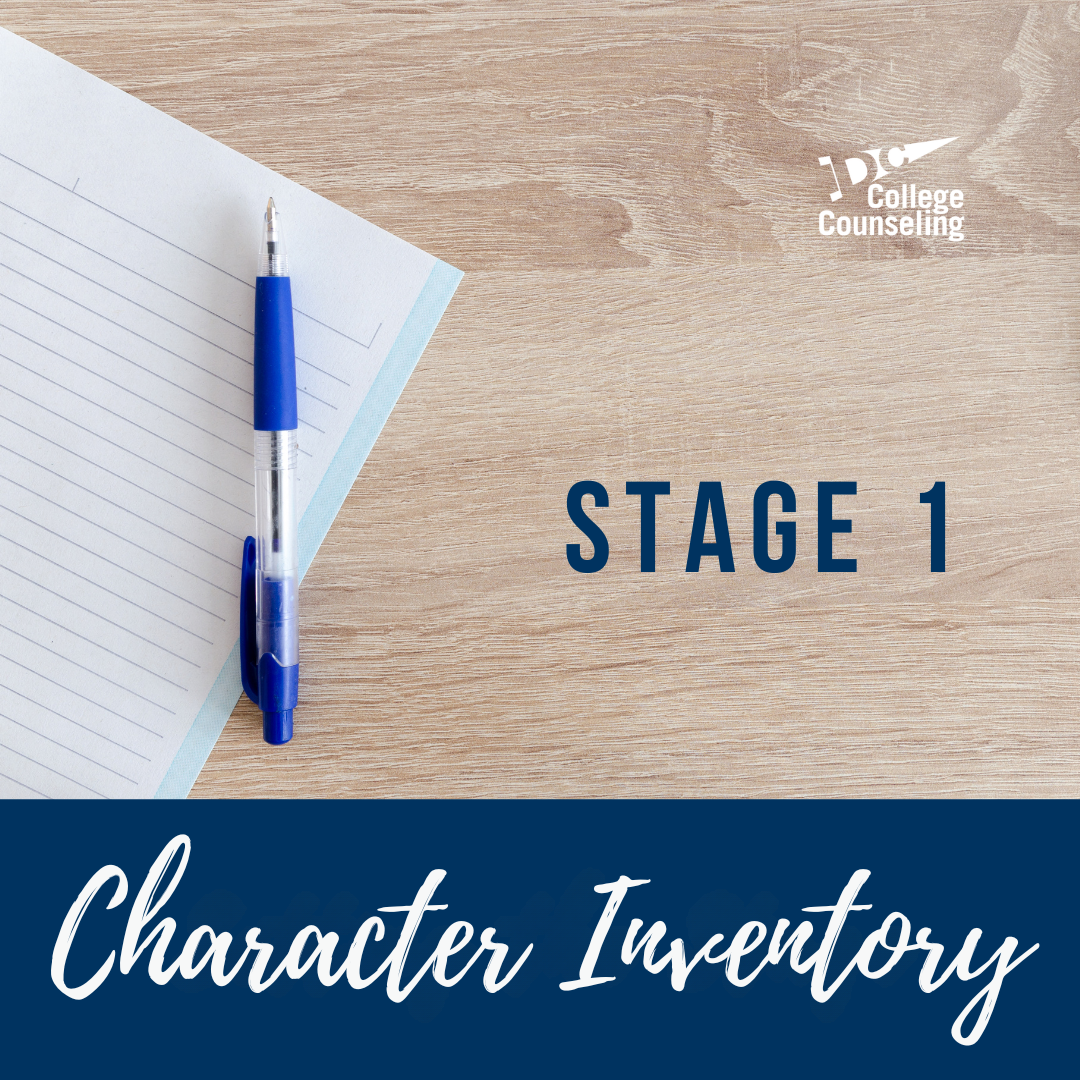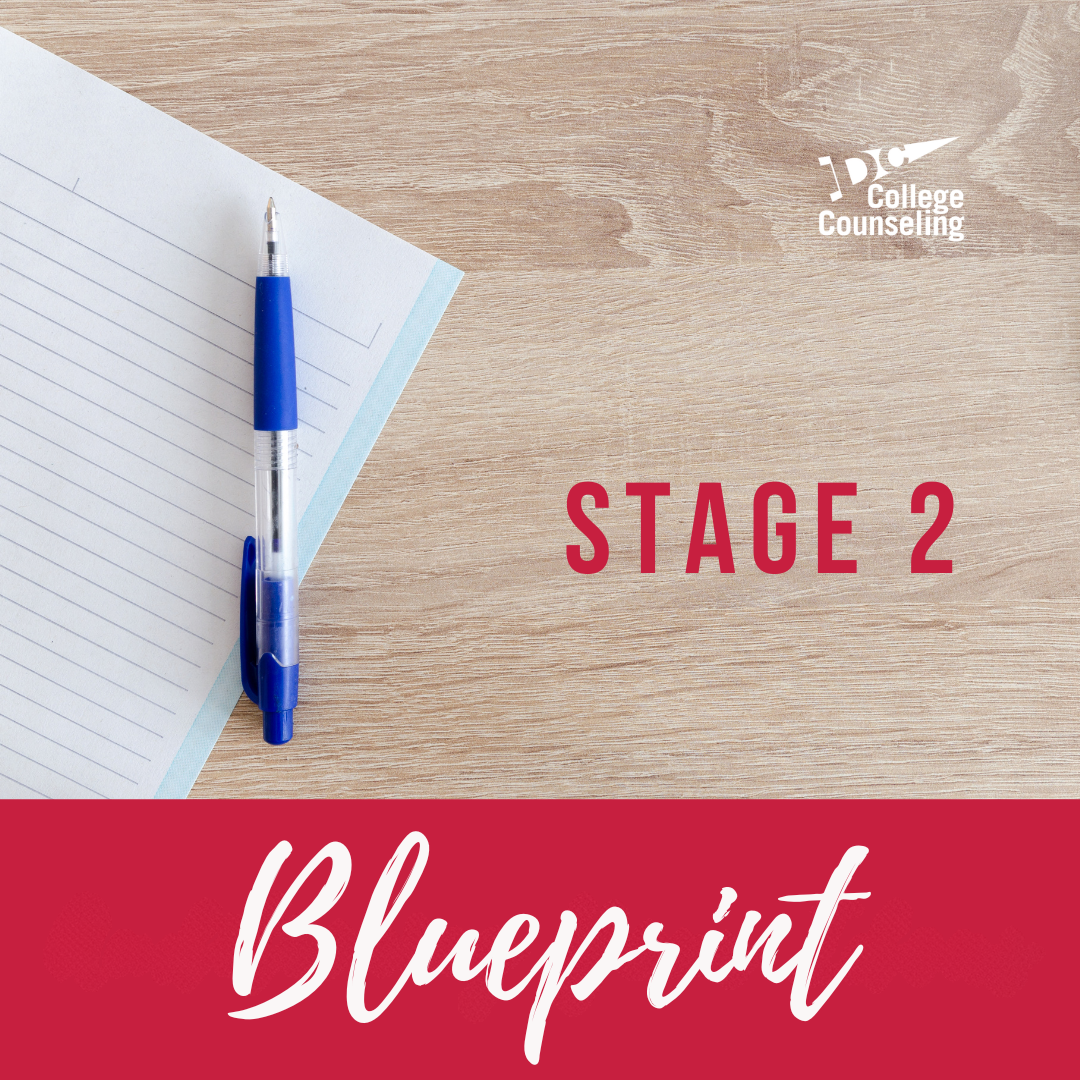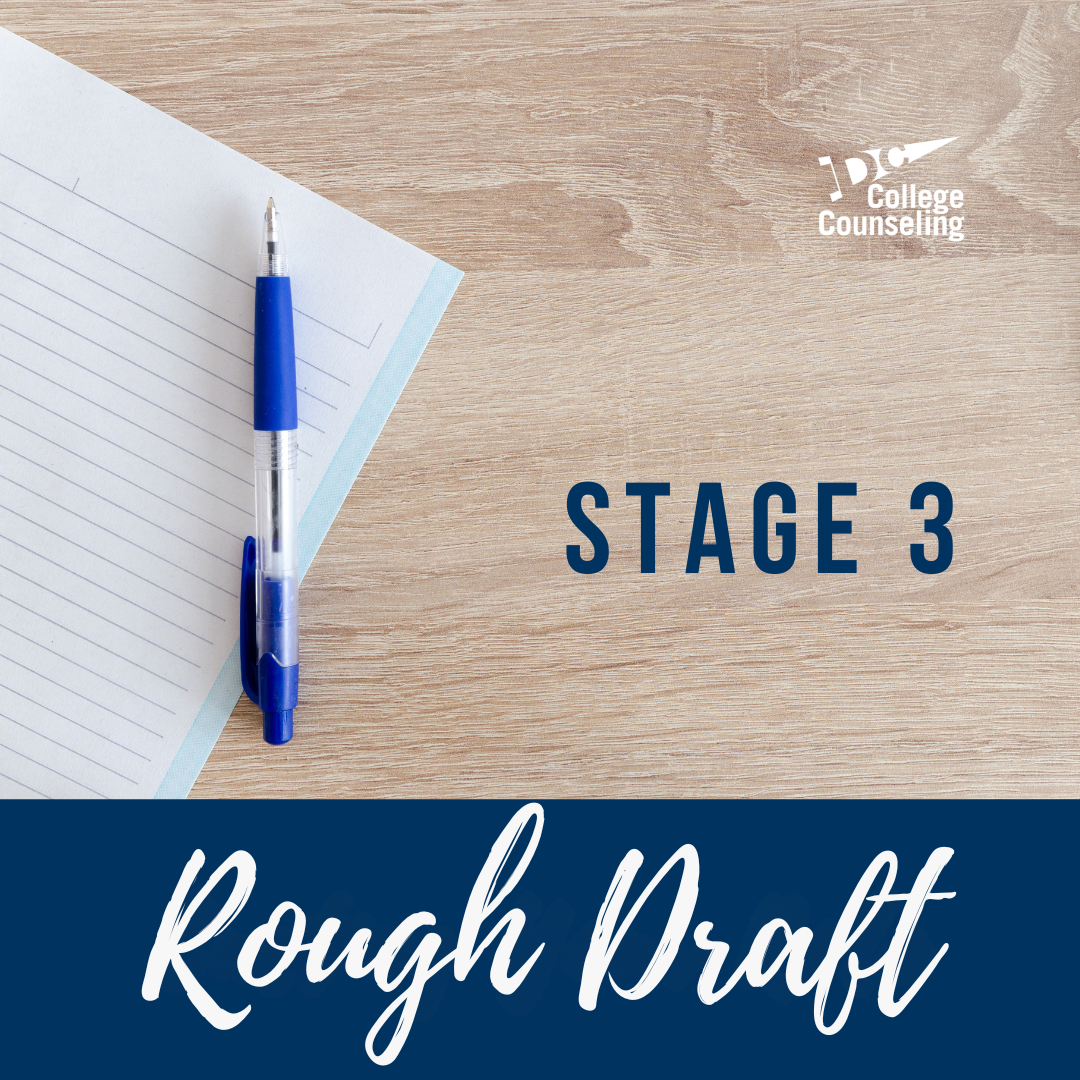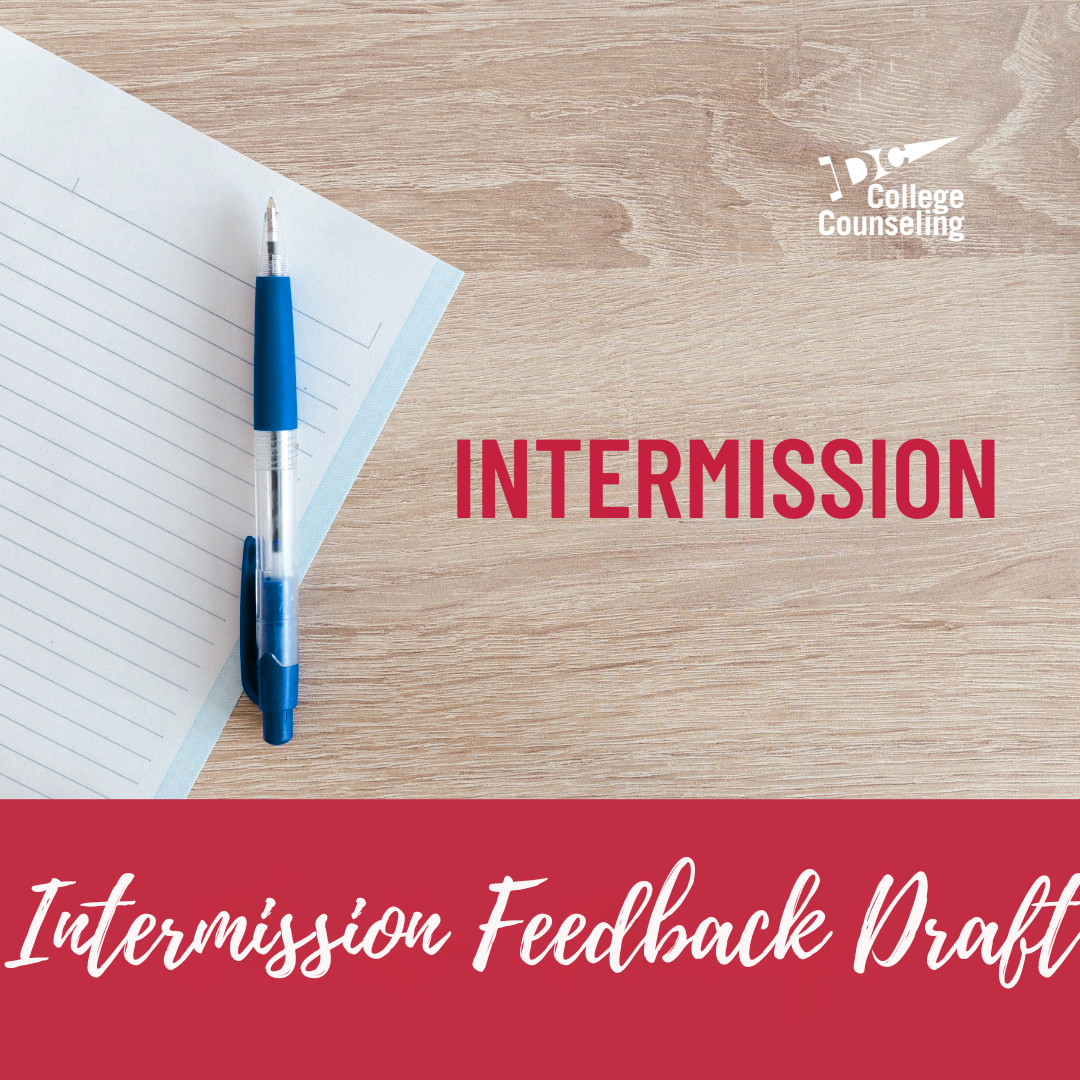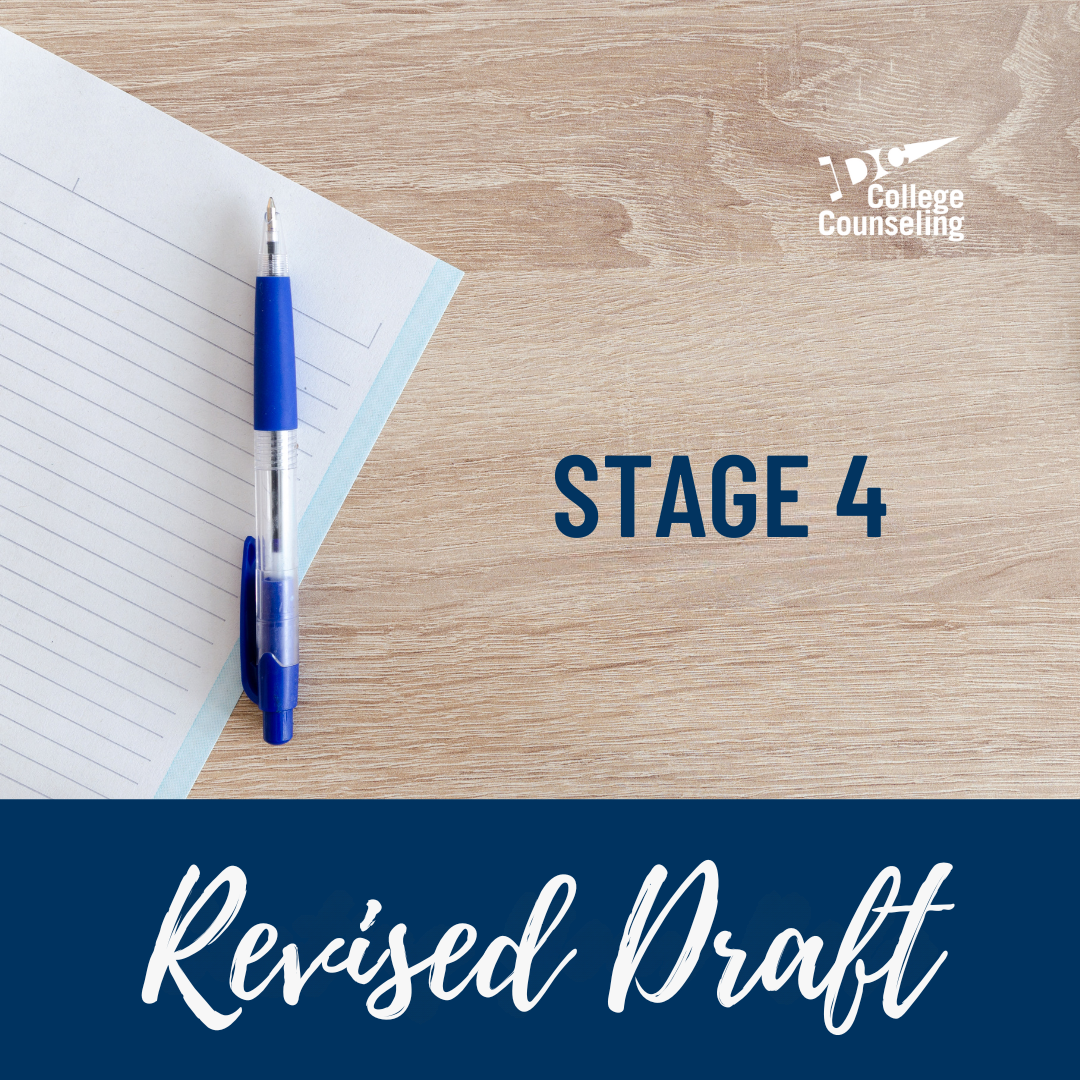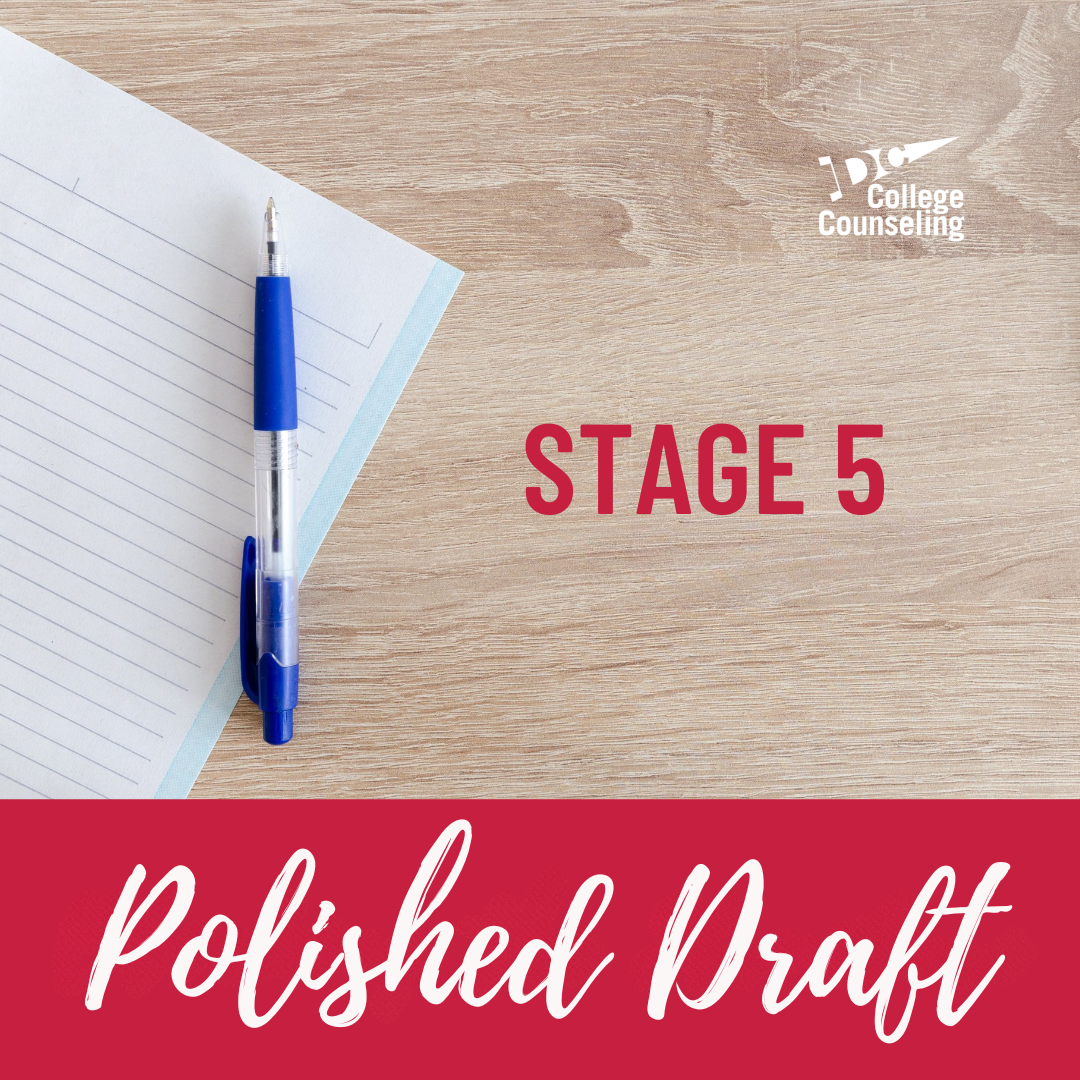RETURN TO STAGE HOMEPAGE
STAGE 9: The Dress Rehearsal
“Please return to your seats.” Intermission has ended, and you now have feedback on your second rehearsal draft. In STAGE 9, we will:
Review your STAGE 8 feedback
Write the dress rehearsal draft
Applying your Feedback
Comments and suggestions from our staff are going to be your guide as you begin your third draft–the dress rehearsal. However, the feedback isn’t going to help you unless you actually read and understand the comments.
That’s why you are going to begin this stage by looking closely at your STAGE 8 feedback and taking notes in a revision organizer. Don’t worry, it won’t take you long! Actually, these notes will save you time when you start writing your draft. You’ll carefully read the feedback you received on your second rehearsal draft and identify three important things you’ll need to do when you sit down to write your essay again.
Since the dress rehearsal is your third draft, it’s time to focus on smaller details that we didn’t worry too much about in earlier stages. Of course we still want you to consider structure and organization, especially if your STAGE 8 feedback identified some concerns in this area. And we certainly want you to be aware of meaningful details. But let’s bring personality and polish into the spotlight.
As you write your draft, concentrate on these areas:
Personality: your essay ‘sounds’ like you (we’ll share more about personality below).
Polish: your essay ‘shines’ because it’s organized and focused. It also uses precise language that makes the details, your feelings, and the overall story ‘sparkle.’ Of course a well-polished essay is also free of grammar and spelling errors, but we’ll tackle commas and such in stage 10.
Your dress rehearsal draft doesn’t need to meet that magical 650 word count mark. If it's still over the limit, that’s okay. BUT be conscious of the word count as you write your third draft, making your best effort to cut out those lingering unnecessary details.
Remember that the same ‘fresh dish’ advice applies to this draft, just like the second rehearsal draft. Resist the urge to copy and paste previous versions of your essay. Start with a clean plate!
Your Assignment - Part I:
Open your STAGE Essay Program Materials Google Drive folder and complete the “Dress Rehearsal Revisions Organizer.” You do not have to submit this organizer for review, but it will help you as your work on your new draft!
Letting Your Personality Loose
As we mentioned, we want your essay to ‘sound’ like you. But how exactly do you make your voice shine through in a bunch of paragraphs? While there’s no perfect formula for letting your personality loose, there are a few things you can do to sound like your most authentic self in your writing.
1.Relax
Are you feeling pressured to write the best essay of your life? If so, you might find yourself trying TOO hard, and that’s when you start to lose your voice. Some students morph into robots, advice manuals, or “cheese platters” of cliches. Our best advice is to relax and pretend as though you are ‘speaking’ your essay aloud to someone. Keep your tone conversational, your style simple, and your words authentic.
2. Close the dictionary
One of the biggest mistakes we see students make is relying too much on the dictionary and thesaurus. You might think that using big words will make you sound smart and mature, but such elevated vocabulary can actually be quite distracting. For example, imagine reading this sentence in the middle of someone’s PERSONAL college essay: “My mother reproached me for coming home late.” Does that sound authentic? Or does the sentence feel forced? You decide!
Remember that the admissions committee wants your essay to sound like you - a teenager - wrote it. So unless you commonly use terms like ‘depleted’ and ‘invoke’ in your daily life, don’t suddenly make them part of your essay.
3. Choose your words wisely
Once you eliminate those big complicated words from your writing, you have time to focus on the simple ones that are left. We encourage you to style your words and phrases to match your personality. For example, in the “Donald J Woodruff and the Famous Tie Challenge” sample essay, the student writes, “I started to feel self-conscious about being the lone ranger.” This writer could have easily said he was self conscious about being the “only student in the class to still wear a tie.” However, as he was writing the third draft, the phrase ‘lone ranger’ came to mind. He thought it was something he’d actually say if he was telling the story to his family at the dinner table. And most importantly, the student felt that these words really captured his humor.
4. Ask questions
If you find yourself writing sentences that don’t sound like you, ask yourself these questions:
What am I really trying to say here?
How would I say this to my friends or family?
Taking a moment to pause and answer these questions can be quite helpful. You’ll most likely find a simpler way to express yourself and in a tone that feels more like ‘you.’ We also encourage you to use these questions as a way to cut down on those really long, wordy sentences that leave you feeling tangled up in your ideas.
Your Assignment - Part II:
Open your STAGE Essay Program Materials Google Drive folder and select the subfolder STAGE Essay Drafts. Click on the “STAGE 9 Draft” document to begin your draft. Make sure your chosen Common AppⓇ essay prompt is written at the top of the page!
Once your draft is complete, you’ll submit it for review in advance of your next meeting. Use the buttons below to submit your draft and book your next meeting (if you haven’t already).
The STAGE Program
RETURN TO STAGE HOMEPAGE


